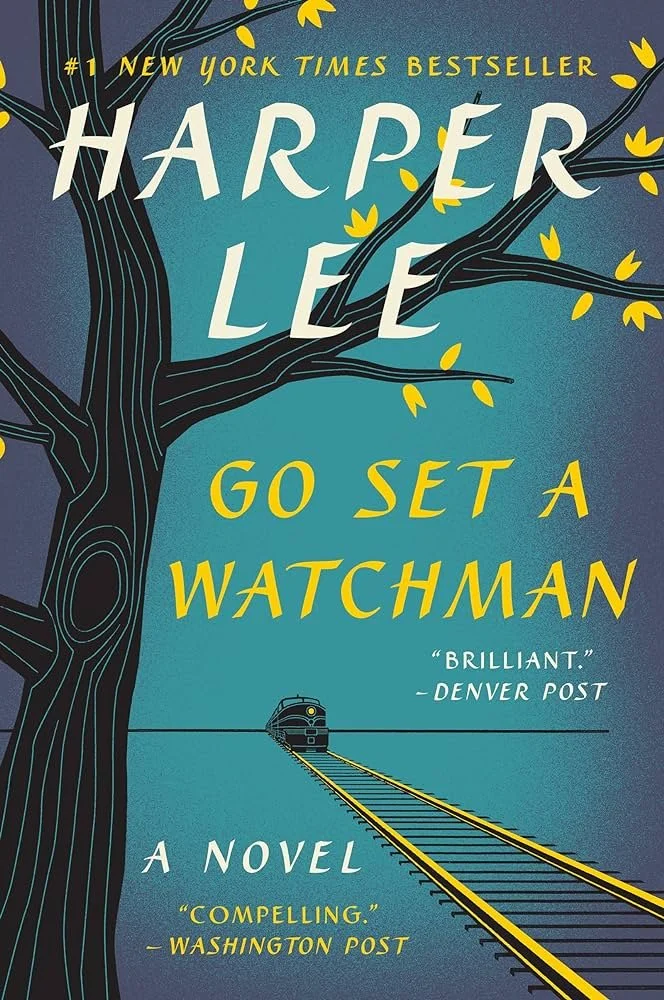Is it Failure if Nostalgia is the Standard?
A Review of Harper Lee's Go Set a Watchman
While it might seem to be a form of blasphemy, I have never read Harper Lee’s To Kill a Mockingbird. I was homeschooled and was largely allowed to pick the books I read, so Lee’s most famous novel was overlooked in favor of Tolkien, Steinbeck, Orwell, and various mythologies, like Arthurian legend novels. Picking up Go Set a Watchman was a wholly new experience for me.
Lee’s Go Set a Watchman is set in the mid-1950s and follows Jean Louise (Scout) Finch during her return visit to Maycomb. Now a New Yorker, Jean Louise is a fish-out-of-water in Maycomb—even though Maycomb is part of her history. She has memories of her time as a girl with Jem, Hank, and Atticus, some meandering and too long, and some informative and helpful to the narrative. But the biggest scandal of the book, as have been spoiled for everyone looking at a review for this novel, is that Atticus Finch, the once hero of To Kill a Mockingbird, is a racist. He is a prominent member of the Citizens’ Council and has racist rhetoric throughout the novel. The reader is along for this revelation as Jean Louise finds a racist pamphlet and follows Atticus and Hank to a Citizens’ Council meeting. Together, we have to work through finding out that Jean Louise’s father is a racist, even if he isn’t the cross-burning type.
I’ve read the reviews of Michiko Kakutani (The New York Times), Adam Gopnik (The New Yorker), Maureen Corrigan (NPR), and Robert McCrum (The Guardian), and they have good points. Kakutani describes Go Set a Watchman as a “lumpy tale about a young woman’s grief over her discovery of her father’s bigoted views.” Gopnik refers to Lee’s second work as a “failure.” Corrigan points out the confusing dead patches in the novel and the distracting asides about various topics. Finally, McCrum compares her to Harriet Beecher Stowe. Having read Dred, I can see the similarities.
These reviews all have merit. There are odd spots of second-person storytelling (pages 175 and 177) that feel out of place and are the only instances of second-person. GSW is lumpy in its reminiscing, and the memories don’t add much to the narrative or character development. Henry is condescending and difficult to sympathize with. Jean Louise waffles at the novel's end through the merit of State’s rights versus the rights of people. Though she is supposed to be acting as a moral compass for GSW, Jean Louise seems confused in her train of thought. My last gripe is that the lead-in takes one hundred and two pages for Jean Louise to find the White Citizens’ Council pamphlet that starts the plot.
The main complaint that people have for Lee’s not-quite-a-sequel is that Atticus Finch is a racist. GSW shows Atticus taking on the case of a black man with the intention of getting him to plead guilty so the NAACP would not be able to take the case, “Hank, I suspect when we know all the facts in the case, the best that can be done for the boy is for him to plead guilty. Now, isn’t it better for us to stand up with him in court than to have him fall into the wrong hands” (Lee 148). This is where not reading To Kill a Mockingbird comes in handy: Atticus Finch being part of the Citizens’ Council is an interesting twist for the reader and devastating knowledge for Jean Louise. Harper’s novel is in a third-person attached narrative, making the reader feel the betrayal along with her. We, in essence, are finding out that our fathers are racist. In 2020, this idea is still reeling and very real. What’s more shocking about Go Set a Watchman is that for a novel set in the mid-1950s, the story is very much one that people can relate to today. Jean Louise takes the time to call her father out on his hypocrisy: “Her voice heavy on sarcasm, ‘We’ve agreed that they’re backward, that they’re illiterate, that they’re dirty and comical and shiftless and no good, they’re infants and they’re stupid, some of them, but we haven’t agreed on one thing and we never will. You deny that they’re human’” (251). The idea of finding out your father, grandfather, whatever, are racist through the current political strife going on—that is what makes Go Set a Watchman so compelling.
Countless reviews have compared GSW to its predecessor, and as I stated, many of them have valid points. However, Lee’s second novel is topical while being set in the 1950s. She crafted an engaging ‘modern’ woman who abhors what her father is doing. I have staunch disagreements with the language and sentiment of much of what is said by her and others in the novel, but there is still a relatable story underneath. The novel didn’t fail because it’s a bad story; it failed because To Kill a Mockingbird has been romanticized and politicized in a way that Go Set a Watchman could never have lived up to. Look at Lee’s sequel/first draft as its own novel, not as a ruiner of the reputation of Atticus Finch. He’s a fictional character. He won’t mind.
